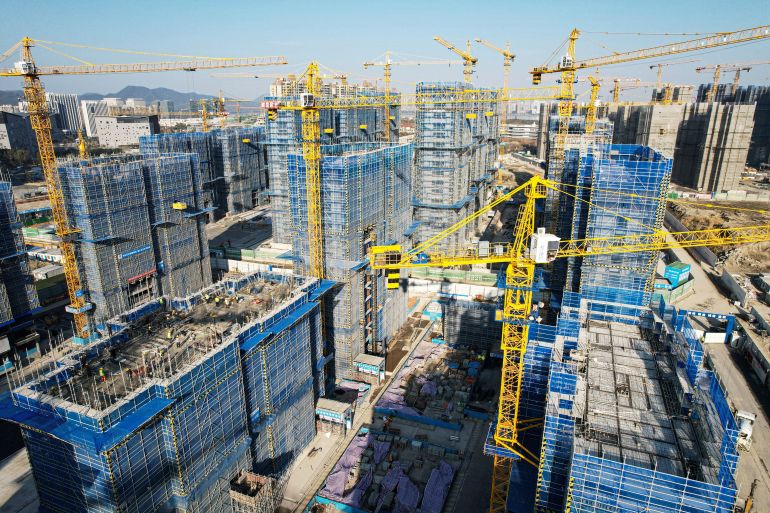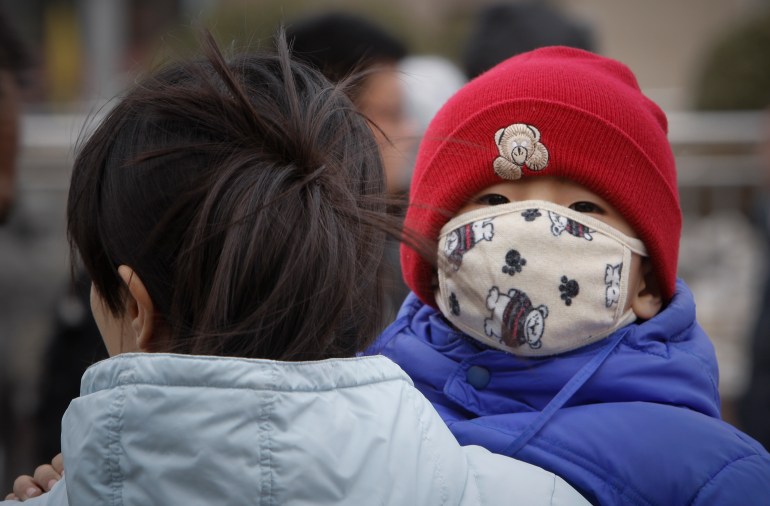Taichung, Taiwan – When Hao Pengfei retired last year, it felt nothing like he had expected it would when he was a younger man.
“I used to think that retirement is more about relaxation and hobbies and less about stress and concerns,” Hao told Al Jazeera from his home in China’s eastern city of Nanjing.
Hao worked as an administrator in a state-owned manufacturing company until he turned 60 last year.
Although Hao would have liked to continue working, he was mandated by company policy to retire at 60.
But Hao did not stay retired for long.
With mortgage payments, home renovations and medical bills surpassing his monthly pension payouts, he was soon back on the job market.
Today, he works part-time as an accountant for a restaurant owner during the day and as a hotel security guard at night to supplement his pension.
“At the same time, my wife tries to find new ways for us to slim down our budget at home,” he said, adding that his wife has been unable to work since she suffered a back injury nearly 20 years ago.
Traditionally, many Chinese seniors move in with their children after retiring, but Hao does not see that as an option.
“Our son lives in a small apartment in Shanghai with his wife and two daughters,” he said.
“There would be no room for us, and in any case, my wife and I have our lives here in Nanjing.”
Hao’s son and his family visited him and his wife for a few days over the Lunar New Year holiday period in February.
For many Chinese, the holiday is associated with big spending on travel, food and gifts, but Hao and his family tried to keep their expenses to a minimum.
While they spoiled their granddaughters a bit, they are eager to save money this year so that Hao hopefully can retire with peace of mind one day in the future.

More than two-thirds of Chinese senior citizens intend to return to the workplace after retirement, according to a survey carried out by Chinese recruitment website 51job.com in 2022.
While some Chinese media outlets have hailed the return of retirees as positive for a Chinese economy lacking manpower in certain sectors, Hao sees it differently.
“I think it shows that for many people our pension system cannot provide a decent living today, which doesn’t bode well for the future,” he said.
Yang Jiang, a senior researcher at the Danish Institute for International Studies, said the trend of retirees returning to work reflects a pension system that is struggling to meet people’s needs.
“Some people experience a substantial decrease in their income when they retire which forces them to go back to work,” Yang told Al Jazeera.
China’s pension system was initially a purely state-driven undertaking intended only to supplement the caregiving role adult children undertook on behalf of their ageing parents.
As China urbanised, family bonds weakened and the elderly population increased, pension coverage was expanded to cover some 1.05 billion people – almost the entire population. Even so, major disparities still exist.
Whereas retired urban salaried employees like Hao receive an average monthly basic pension of about $470, rural and migrant workers can receive as little as $25.
Working on a construction site just a few blocks away from Hao’s home in Nanjing, Gu Chengji, 63, is among those who would receive very little from the system if he were to retire tomorrow.
One of China’s nearly 300 million migrant workers, Gu is registered as a resident of the rural village he was born in, making him ineligible for the more generous social security benefits provided by the city he has lived and worked in for most of his life.
“My retirement will be the money I save myself,” Gu told Al Jazeera.
Gu believes he will need to work for at least 10 more years before he has enough to retire, but he is afraid that his body will not survive another decade toiling away on construction sites.
“I have worked hard for the same company for years now, and they know I am a good worker, so they let me do some of the easier stuff now,” he said. “But it is still hard work, and some nights I can’t sleep because of back and knee pain.”

The migration of millions of workers like Gu to China’s major cities has exacerbated the gaps in the pension system, by depriving rural regions of workers needed to fund their pension schemes.
China’s property crisis has also added to the funding shortfall as many provincial governments are dependent on land sales to make up revenues.
China’s shrinking population points to an even more severe pensions crisis down the road.
Last year, the number of Chinese aged 60 and above reached an all-time high of almost 300 million. Over the next 10 years, about 300 million more Chinese are expected to reach the official retirement age of 60 for men and 50-55 for women.
Meanwhile, fewer people are entering the workforce.
China’s population fell for a second straight year in 2023, as the country’s birthrate hit a record low of 6.39 births per 1,000 people.
According to a 2019 study by the government-backed Chinese Academy of Social Sciences, the country’s main pension fund for urban workers is on track to run out of funds by 2035.
“There are major challenges, and they will require pension reforms,” Allan Von Mehren, China economist at Danske Bank, told Al Jazeera.
There are already signs that such reforms are on their way, with state-backed media reporting on plans by Beijing to raise the age of retirement in phases.
“China also still has untapped resources in terms of the overall educational level as well as productivity, which could be cultivated to assist in offsetting future challenges,” Von Mehren said.

Many economic analysts have argued for the need to consolidate the country’s fragmented pension schemes into a more unified system with greater flexibility.
But any reform to benefits could lead to public backlash.
When authorities in the cities of Wuhan and Dalian last year announced cuts to retirees’ medical benefits, senior citizens took to the streets in protest.
Sun Mengjie, an accountant for a medical products supplier in the southern city of Guangzhou, said she is concerned that similar reforms will harm senior citizens across China.
“They can’t expect us to go back to the days when most people had to rely on their children when they got old,” Sun, 53, told Al Jazeera.
Sun is planning to work for as long as she can.
“I am concerned that I won’t be able to rely much on the state or others in the coming decades so I want to save as much money as possible while I can,” she said.
Hao from Nanjing hopes that China can make the pension system financially viable without hollowing it out.
“If not, I’m worried that the China my granddaughters will grow up in will not be a very nice place to grow old in,” he said.
Read More: World News | Entertainment News | Celeb News
Aljazera









